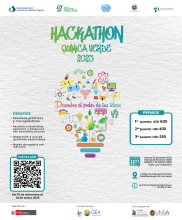plastic alternative
Designing CO2-responsive and Degradable Polymers
Plastic is a frequently used material that can vastly harm the environment. Most disposed plastics persist in the environment, breaking down into smaller particles known as microplastics that harm aquatic life and humans. Polymers capable of degradation can alleviate the presence of microplastics in the environment, but degradation rates are often slow (>100 years) and harsh acidic or basic conditions may be required for complete degradation.
Lifecycling™ Platform
Novoloop is a startup working on solutions to break down and upcycle plastics. Through its Lifecycling™ platform, Novoloop transforms hard-to-recycle plastics, such as plastic bags and packaging, into high-performance materials with a reduced carbon footprint. This novel technology chemically converts post-consumer polyethylene into essential building blocks, which are then used to produce thermoplastic polyurethane (TPU), reducing carbon emissions by up to 41% compared to conventional methods.
Freezer, Microwave, and Oven-Safe Food Packaging Solutions
Footprint specializes in plant-based fiber solutions to replace rigid plastics in food packaging. With a focus on freezer, microwave, and oven-safe applications, Footprint’s mission is to remove plastic from food-contact materials, creating packaging that is fully biodegradable The company's patented technologies provide moisture and oil resistance, extending the shelf life of frozen goods from 12 to 18 months.
Plant-Based Resin Alternatives for Single-Use Plastics
PlantSwitch is a startup with a mission to replace all petroleum-based single-use plastics with plant-based alternatives. PlantSwitch's proprietary technology upcycles agricultural residues into plant-based resin that can be used to manufacture nearly all types of plastic products. According to the company, their home-compostable resin can fully break down in backyard compost within 12 months, leaving behind no microplastics.
Environmental Super Absorbent Polymers (eSAP) Technology
Polygreen Group is a Israel-based startup developing environmental superabsorbent polymers (eSAPs), which are biodegradable and environmentally friendly alternatives to traditional synthetic polymers. Polygreen's core innovation offers high absorbance capabilities while being environmentally sustainable. The eSAPS developed by Polygreen decompose naturally, reducing environmental harm compared to conventional polymers used in similar applications.
CMAP Technology for Plastics
Resinergy is developing an innovative, scalable, and environmentally efficient Continuous Microwave Assisted Pyrolysis (CMAP) technology that reduces fossil-fuel-based resource dependency.
Sea Technology™ -- Seaweed-Derived Alternatives to Plastic
Loliware has developed Sea Technology™, a groundbreaking category of seaweed-based resins designed to replace plastic at scale. Utilizing regenerative, carbon-capturing, ocean-farmed seaweed, Sea Tech™ Resins mimic the look and feel of traditional plastics and are specifically engineered to be compatible with existing manufacturing equipment, ensuring a smooth transition to sustainable practices. These resins are always Designed to Disappear™, decomposing as quickly as a banana peel. Products made from Sea Tech™ can either be eaten or composted into soil.
